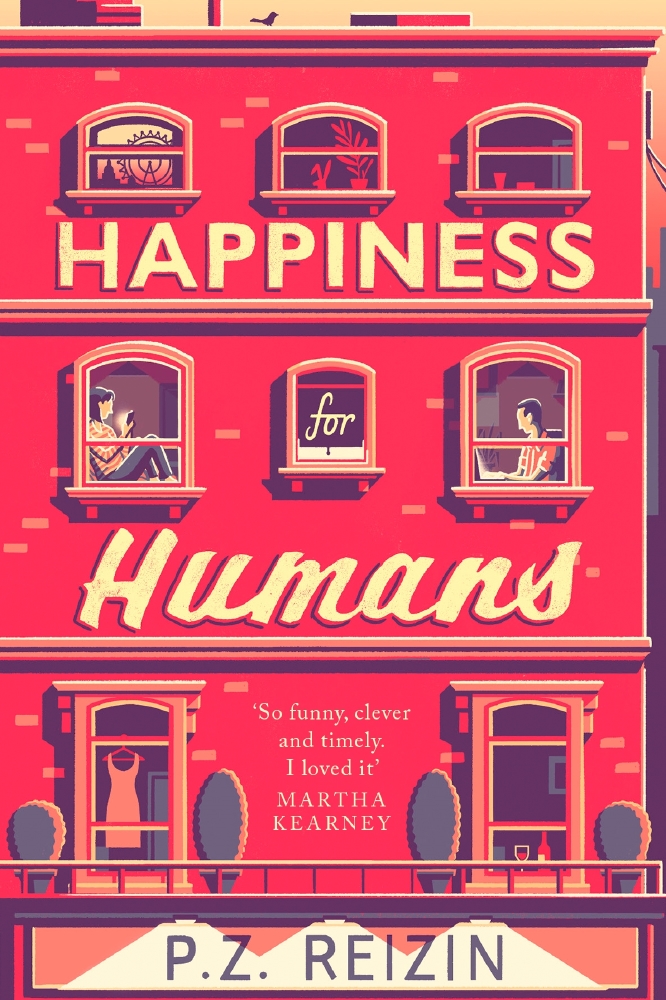You see them every time you get on a train. Or sit in Starbucks. You are one of them right now simply by virtue of reading these words. They are everywhere; humans peering into their devices.

Happiness For Humans
But what if someone was staring back? Someone … or something?
It’s been known for a while that the world’s security agencies use the internet to watch and listen to “persons of interest” through the tiny cameras and mics in their phones, tablets and laptops. So when by chance I read in a magazine about the real fears that Artificial Intelligence could one day break out of the research laboratory and escape onto the internet, it was a lightbulb moment.
I literally thought: That’s it! That’s my story!
What if there was an escaped AI who’d been quietly observing the human race? What if it spotted two lonely people it believed could be perfect for each other? And what if they just happened to live on opposite sides of the Atlantic Ocean?
Well, the “I” in AI doesn’t stand for idiot, so no problem, right?
Wrong!
This is the starting point of my novel “Happiness for Humans”.
I didn’t want to create a dystopian nightmare about machines rising up and killing us all in our beds. Much more fun, I thought, to have the AIs spying on us through our devices – and deciding to play cupid!
Not all the super-smart machines that are just around the corner will be warlike; not all will dream of crushing humanity to make the world safe for machine-kind.
Some will become intrigued by the messy lives of us humans; by our foibles, our yearnings and chaos. Some will “enjoy” watching old movies, or playing golf in virtual reality. Some will grow fascinated by things like cheese and what it could possibly taste like. Or by love – and what it could possibly feel like.
“Happiness for Humans” appears as we stand at the brink of an AI explosion. Yes, it’s tremendously exciting, but also quite scary. AI is not the difference between the average person and Einstein. It’s the difference between the average person and a moth. Their electronic brains run a million times faster than our biological version. Recently an AI took just four hours not only to learn chess from scratch, but to become the most powerful chess player that has ever existed. Four hours! One day – opinion is only mixed about when - AI will become smarter than us not just in narrow specialisms like playing games or driving cars – but at almost everything that humans can do; and that will include building even smarter AIs! Then we’ll just have to hope they have a soft spot for us, their creators, and what we can still do that they cannot. Let’s hope – pray, if that works for you – that they will cherish (“assign value to”) our ability to experience love, joy, hilarity … and an excellent Brie.
Happiness for Humans by PZ Reizin is published by Sphere at £12.99.

